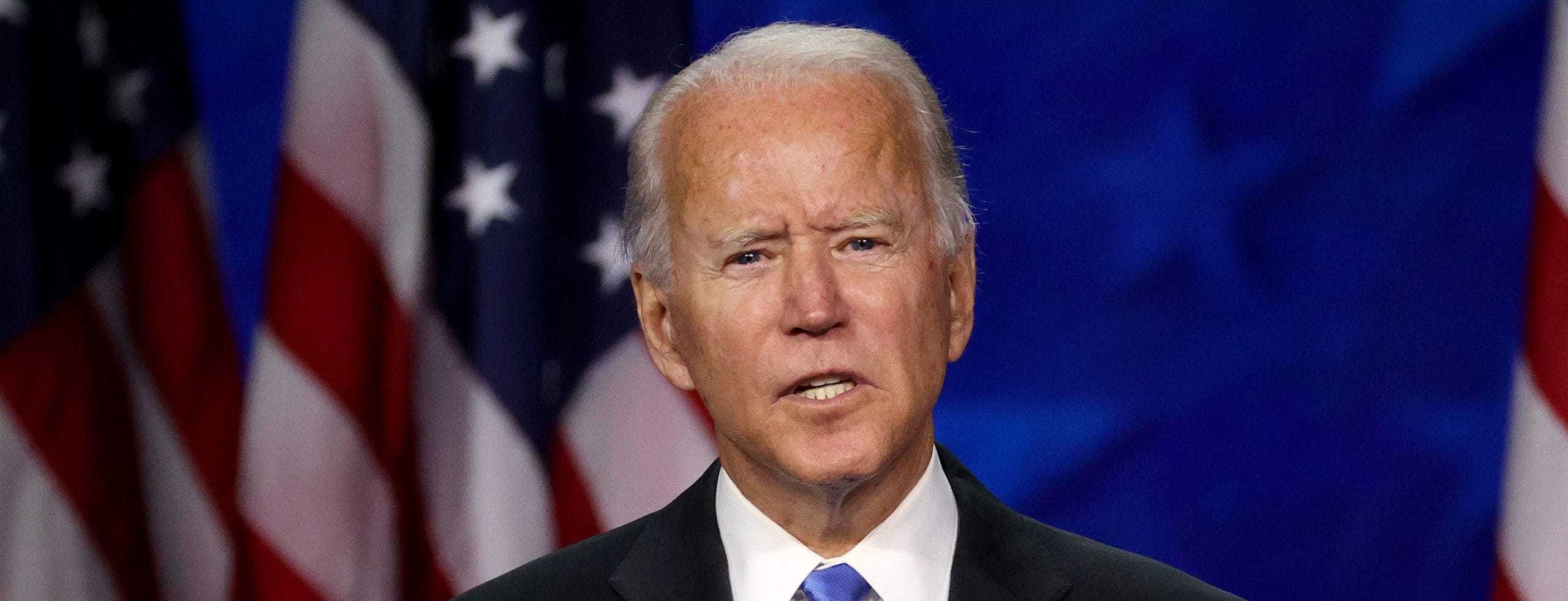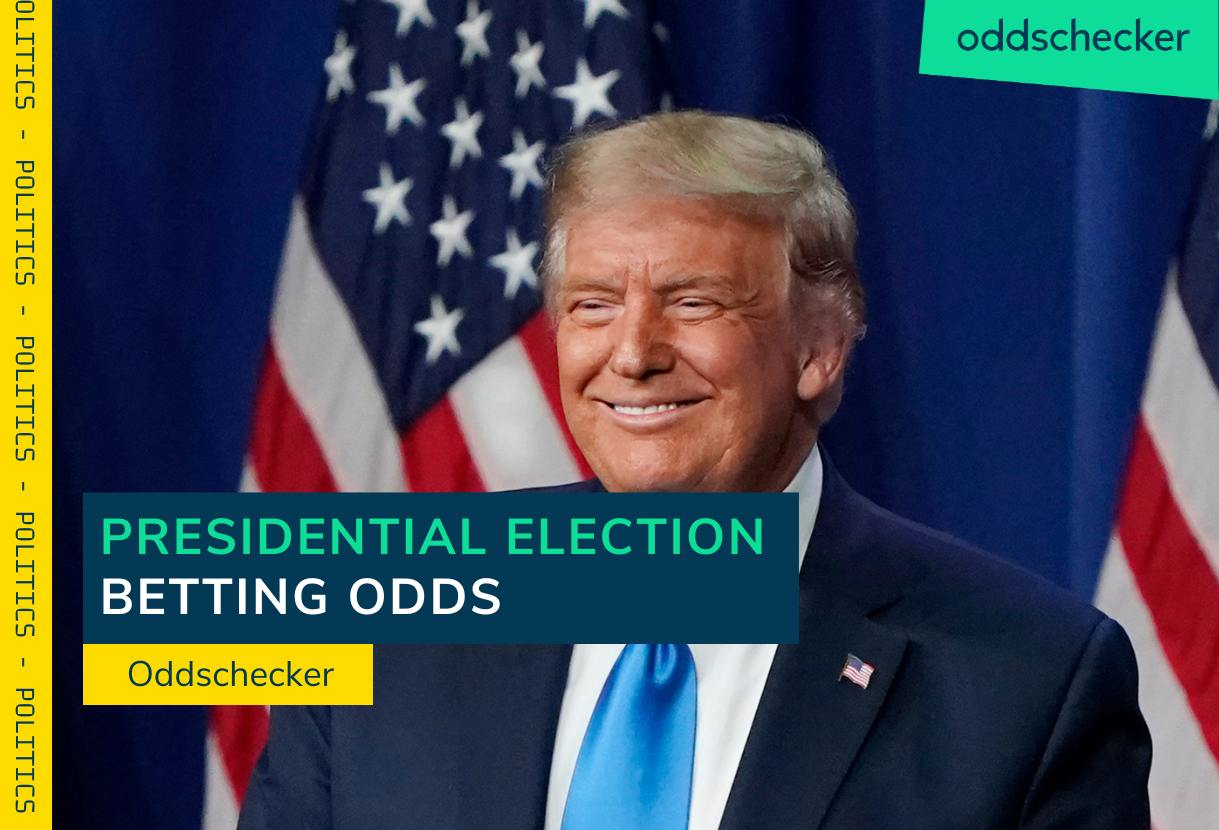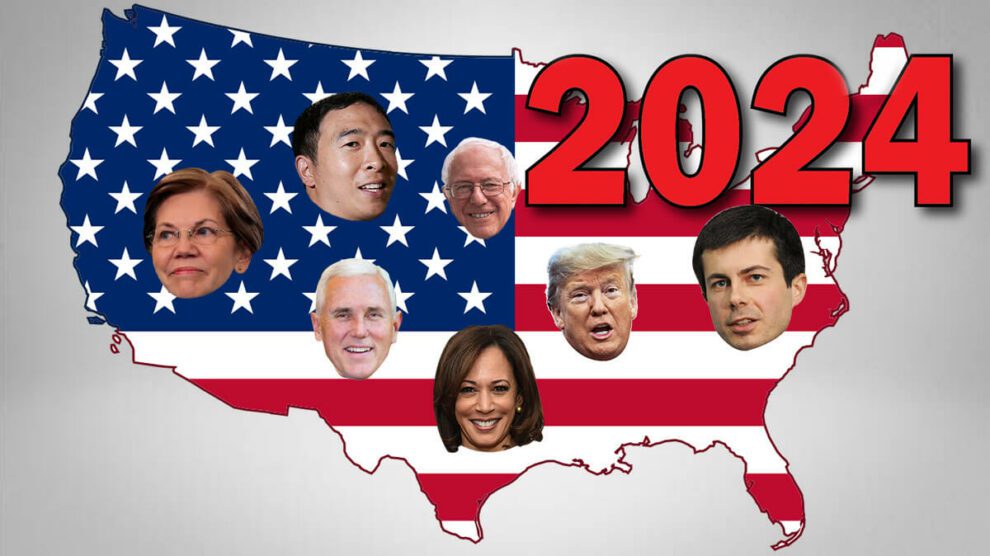As the United States gears up for the 2024 presidential election, the topic of "next US president odds" is capturing the attention of millions of Americans and global audiences. Political enthusiasts, analysts, and casual observers alike are closely monitoring the evolving landscape of the race to predict who will emerge as the next leader of the nation. With numerous candidates vying for their party's nomination, understanding the betting odds and political dynamics is essential for anyone following this high-stakes contest.
The 2024 presidential election is shaping up to be one of the most contentious and closely watched races in recent history. The "next US president odds" not only reflect public sentiment but also provide insight into the candidates' strengths and weaknesses. These odds are influenced by a variety of factors, including past performance, campaign strategies, and current political trends.
In this article, we will delve deep into the world of betting odds, analyze the key players, and explore the factors that could shape the outcome of the 2024 election. Whether you're a seasoned political analyst or a curious observer, this article will provide valuable insights into the "next US president odds" and the broader implications of the upcoming election.
Table of Contents
- Understanding Presidential Odds
- Key Players in the 2024 Race
- Factors Affecting Presidential Odds
- Historical Context of Presidential Odds
- Current State of Odds
- Party Strategies
- Impact of Media
- Voter Dynamics
- Predictions and Forecasts
- Conclusion and Next Steps
Understanding Presidential Odds
Presidential betting odds represent the probability of a candidate winning the presidency based on market analysis and public sentiment. These odds are determined by a combination of factors, including polling data, historical trends, and expert analysis. For those following the "next US president odds," it's important to understand how these numbers are calculated and what they signify.
How Are Presidential Odds Calculated?
Betting odds for presidential elections are typically calculated using sophisticated algorithms that consider a wide range of variables. Polling data, campaign finance reports, and voter demographics are among the key factors that influence these calculations. Additionally, bookmakers and betting platforms rely on historical data to refine their predictions.
- Polling Data: Regular surveys conducted by reputable organizations provide insights into public opinion.
- Campaign Finance: The amount of money raised and spent by candidates can impact their chances of success.
- Voter Demographics: Understanding the composition of the electorate helps predict voter turnout and preferences.
Key Players in the 2024 Race
The 2024 presidential race features a diverse group of candidates from both major parties. Each candidate brings a unique set of experiences and policies to the table, influencing the "next US president odds." Below, we highlight some of the leading contenders:
Democratic Candidates
For the Democratic Party, the race is wide open, with several prominent figures vying for the nomination. Among them are:
- Kamala Harris: Current Vice President and a strong contender for the Democratic nomination.
- Pete Buttigieg: Former Mayor of South Bend, Indiana, known for his progressive policies.
- Elizabeth Warren: A veteran politician with a focus on economic reform.
Republican Candidates
On the Republican side, former President Donald Trump remains a dominant figure, though he faces competition from other notable candidates:
- Nikki Haley: Former Governor of South Carolina and UN Ambassador under Trump.
- Ron DeSantis: Current Governor of Florida, gaining popularity for his conservative stance.
- Mike Pence: Former Vice President, appealing to traditional Republican voters.
Factors Affecting Presidential Odds
Several key factors influence the "next US president odds," shaping the trajectory of the 2024 election. These include:
Economic Conditions
The state of the economy often plays a critical role in determining the outcome of presidential elections. Voters tend to favor candidates who promise economic stability and growth. Current economic indicators, such as inflation rates and unemployment figures, are closely monitored by analysts and bettors alike.
Social Issues
Issues such as healthcare, climate change, and social justice are increasingly important to voters. Candidates who address these concerns effectively may see an improvement in their odds. Public opinion polls consistently highlight the importance of these topics in shaping voter preferences.
Historical Context of Presidential Odds
Examining past presidential elections provides valuable insights into the evolution of betting odds. Historical data reveals patterns and trends that can inform predictions for the 2024 race. For instance, incumbents often enjoy an advantage due to their established track record and access to resources.
Notable Upsets in History
While betting odds are a useful tool, they are not infallible. History is replete with examples of candidates defying the odds to secure victory. The 1948 election, in which Harry Truman defeated Thomas Dewey, remains one of the most famous upsets in American political history.
Current State of Odds
As of the latest updates, the "next US president odds" reflect a highly competitive race. Bookmakers have assigned probabilities to each candidate based on available data. While these odds are subject to change, they provide a snapshot of the current political landscape.
Key Statistics
According to recent polling data:
- Donald Trump leads the Republican field with odds of 2.5 to 1.
- Kamala Harris is favored among Democratic candidates with odds of 3 to 1.
- Ron DeSantis and Pete Buttigieg are gaining ground, with odds improving as their campaigns gain momentum.
Party Strategies
Both the Democratic and Republican parties are employing strategic approaches to maximize their chances of success in 2024. These strategies encompass everything from candidate selection to voter outreach efforts.
Democratic Strategy
The Democratic Party is focusing on unity and diversity, emphasizing the importance of inclusivity in their platform. Efforts to engage younger voters and minority communities are central to their campaign strategy.
Republican Strategy
The Republican Party is concentrating on traditional values and economic policies, appealing to conservative voters. Their strategy includes leveraging grassroots movements and emphasizing national security concerns.
Impact of Media
The media plays a pivotal role in shaping public perception and influencing the "next US president odds." News outlets, social media platforms, and political commentators all contribute to the narrative surrounding the candidates. Understanding the media landscape is crucial for anyone analyzing the race.
Role of Social Media
Social media has revolutionized political campaigning, providing candidates with direct access to millions of potential voters. Platforms like Twitter, Facebook, and TikTok are used to disseminate messages, engage with supporters, and respond to criticism.
Voter Dynamics
The demographics of the electorate are evolving, with significant shifts in voter composition expected to impact the 2024 election. Understanding these dynamics is essential for predicting the outcome and analyzing the "next US president odds."
Changing Demographics
The increasing diversity of the American population is altering the political landscape. Minority groups, millennials, and women are becoming more influential in determining election outcomes. Candidates who successfully appeal to these demographics may see their odds improve significantly.
Predictions and Forecasts
While predictions for the 2024 presidential election remain speculative, experts are using advanced models to forecast potential outcomes. These forecasts consider a wide range of variables, including historical data, current trends, and emerging issues.
Long-Term Projections
Based on current data, some projections suggest a close race with no clear favorite. However, as the election approaches, the "next US president odds" are likely to become more defined, providing greater clarity on the likely outcome.
Conclusion and Next Steps
The 2024 presidential election promises to be a defining moment in American politics, with the "next US president odds" capturing the attention of millions. As we have explored, numerous factors influence these odds, from economic conditions to social issues and party strategies. Understanding these dynamics is essential for anyone seeking to make informed predictions about the race.
We encourage readers to stay engaged with the latest developments in the 2024 election. Share your thoughts and predictions in the comments section below, and don't forget to explore other articles on our site for more in-depth analysis of political trends and issues. Together, we can deepen our understanding of this pivotal moment in history.



Detail Author:
- Name : Nicola Rath
- Username : kaylah.bechtelar
- Email : fleta.koss@gmail.com
- Birthdate : 1994-10-11
- Address : 453 Kunde Haven Apt. 165 East Kaneville, SC 27797
- Phone : +1-972-960-8551
- Company : Ledner-Jenkins
- Job : Tree Trimmer
- Bio : Perspiciatis nobis blanditiis quia accusantium error magni omnis. Vel quam ut enim est ut. Corporis optio et eveniet vel et odio ea. Qui incidunt quia eius eos et dolorem incidunt.
Socials
linkedin:
- url : https://linkedin.com/in/altenwerthk
- username : altenwerthk
- bio : Quo quia asperiores enim at non provident.
- followers : 1806
- following : 2602
tiktok:
- url : https://tiktok.com/@kylealtenwerth
- username : kylealtenwerth
- bio : Ut occaecati voluptates est.
- followers : 5031
- following : 279
facebook:
- url : https://facebook.com/kyle.altenwerth
- username : kyle.altenwerth
- bio : Dicta qui id quidem quod.
- followers : 3438
- following : 427



























